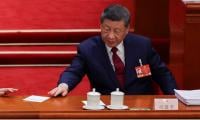No right to know
The people of Pakistan continue to be denied information about governance, administration, the working of the public sector and other knowledge that could be of significance to them. While the Right to Information passed in 2014 by the Senate Standing Committee on Information had been applauded by international and local organisations for opening up information to the public, a new version of this bill approved by the cabinet this year effectively closes the doors that had been opened. In this sense, the law is no better than a similar piece of legislation passed under Pervez Musharraf in 2002. Just as that law did, this one too effectively promotes the lack of transparency by laying down lists which define what is and is not on ‘public record’, and then suggesting that in the public interest the government can exclude any other record from public information as well. Public interest is an extremely dangerous term. It has been misused for decades in our country, to withhold information from people, make legal decisions and carry out other measures that have effectively damaged the nation and citizens. This law does just the same.
Whereas the draft law drawn up by the Senate committee had been rated as one of the best pieces of legislation in the world by organisations such as the Canada-based CLD which gave it 147 points out of 150, the same organisation has given a mere 97 points to the law now approved by the cabinet. The Islamabad based Centre for Peace and Development Initiatives has been as scathing in its opinion on the legislation, giving it only 86 marks out of 150 compared to 145 for the Senate bill. It should be noted that both Khyber Pakhtunkhwa and Punjab have put in place excellent legislation that clearly defines the narrow areas that are exempt from being made public, but make the others open to anyone requesting information on them. This lack of transparency and desire to hide matters of government has been a defining feature of the manner in which our state has been run virtually since its inception. It is of course not just the media that suffers as a result but all citizens. Crucial information, which could have huge implications on health, environment, and other spheres and could also help check corruption at all levels, is kept hidden from the public. As anyone who has attempted to eke out information from government departments will testify, gaining access even to data which is entirely innocuous can be extremely arduous. The 2002 law in many ways made it harder to gain access to information. This attempt to control the flow of information continues and as a result leaves us all handicapped in so many different ways.
-
 Nicole Kidman's Daughter Sunday Rose Under Intense Backlash Post-Keith Urban Divorce
Nicole Kidman's Daughter Sunday Rose Under Intense Backlash Post-Keith Urban Divorce -
 Teddi Mellencamp Reveals Medication Side-effects Landed Her In The Hospital
Teddi Mellencamp Reveals Medication Side-effects Landed Her In The Hospital -
 Chase Stokes Calls Out Morgan Evans Over Comments On Kelsea Ballerini Split
Chase Stokes Calls Out Morgan Evans Over Comments On Kelsea Ballerini Split -
 Elon Musk Says Legal Pressure Forced Him To Pay Full Price For Twitter
Elon Musk Says Legal Pressure Forced Him To Pay Full Price For Twitter -
 Sarah Ferguson’s Downfall & Housing Crisis: Pals Make A Decision On Radioactive Ex-Duchess
Sarah Ferguson’s Downfall & Housing Crisis: Pals Make A Decision On Radioactive Ex-Duchess -
 Taylor Swift Faces Awkward Situation Ahead Of Her Wedding To Travis Kelce
Taylor Swift Faces Awkward Situation Ahead Of Her Wedding To Travis Kelce -
 Anthropic, Pentagon Resume Talks On ‘high Stakes’ AI Defense Deal
Anthropic, Pentagon Resume Talks On ‘high Stakes’ AI Defense Deal -
 OpenAI Annualized Revenue Hits $25 Billion Milestone Amid Global Adoption Surge
OpenAI Annualized Revenue Hits $25 Billion Milestone Amid Global Adoption Surge -
 Princesses Beatrice, Eugenie’s Parents Hurt Their Future With William, Kate: ‘The Knives Are Out’
Princesses Beatrice, Eugenie’s Parents Hurt Their Future With William, Kate: ‘The Knives Are Out’ -
 Billy Porter Claims He Came Back From The Dead Amid Sepsis Battle
Billy Porter Claims He Came Back From The Dead Amid Sepsis Battle -
 Jason Dickinson Reportedly Headed To Oilers In Trade With Chicago Blackhawks
Jason Dickinson Reportedly Headed To Oilers In Trade With Chicago Blackhawks -
 Harry Styles Hints He's Ready For Marriage And Family Life
Harry Styles Hints He's Ready For Marriage And Family Life -
 David Harbour’s Ex Faced Extreme Humiliation At Lily Allen’s Producer's Birthday Bash
David Harbour’s Ex Faced Extreme Humiliation At Lily Allen’s Producer's Birthday Bash -
 China Targets Tech Innovations Amid High Stakes Rivalry With US: Key Strategies Explained
China Targets Tech Innovations Amid High Stakes Rivalry With US: Key Strategies Explained -
 Pacers Vs Clippers: Kawhi Leonard Powers Clippers Past Pacers For Third Straight Win
Pacers Vs Clippers: Kawhi Leonard Powers Clippers Past Pacers For Third Straight Win -
 Scientists Build Tiny AI Brain Model Using Monkey Neurone Data
Scientists Build Tiny AI Brain Model Using Monkey Neurone Data



